BuzzFeed says it’s closing HuffPost Canada’s operations and laying off 23 workers as part of a broad restructuring plan for the company.
The decision follows a deal announced late last year by BuzzFeed to buy HuffPost from Verizon.
BuzzFeed says in a statement it is also laying off 47 HuffPost employees in the U.S. and beginning consultations in Australia and the U.K. to propose “slimming operations” in both places.
HuffPost Canada says on a message posted to its website that it will no longer be publishing content.
It said existing content will be maintained as an online archive, but that certain site features will be permanently disabled as of March 12.
CWA Canada says about two dozen workers at HuffPost Canada had filed for union certification in February.
Martin O’Hanlon, president of CWA Canada, says it appears the decision to close HuffPost’s Canadian operations was planned.
O’Hanlon says the decision is devastating for Canadian journalism and continues the alarming trend of media consolidation across the country.
https://twitter.com/Samantha_KB/status/1369346927641387011?ref_src=twsrc%5Etfw%7Ctwcamp%5Etweetembed%7Ctwterm%5E1369346927641387011%7Ctwgr%5E%7Ctwcon%5Es1_&ref_url=https%3A%2F%2Ftoronto.citynews.ca%2F2021%2F03%2F09%2Fhuffington-post-canada-closing-down%2F
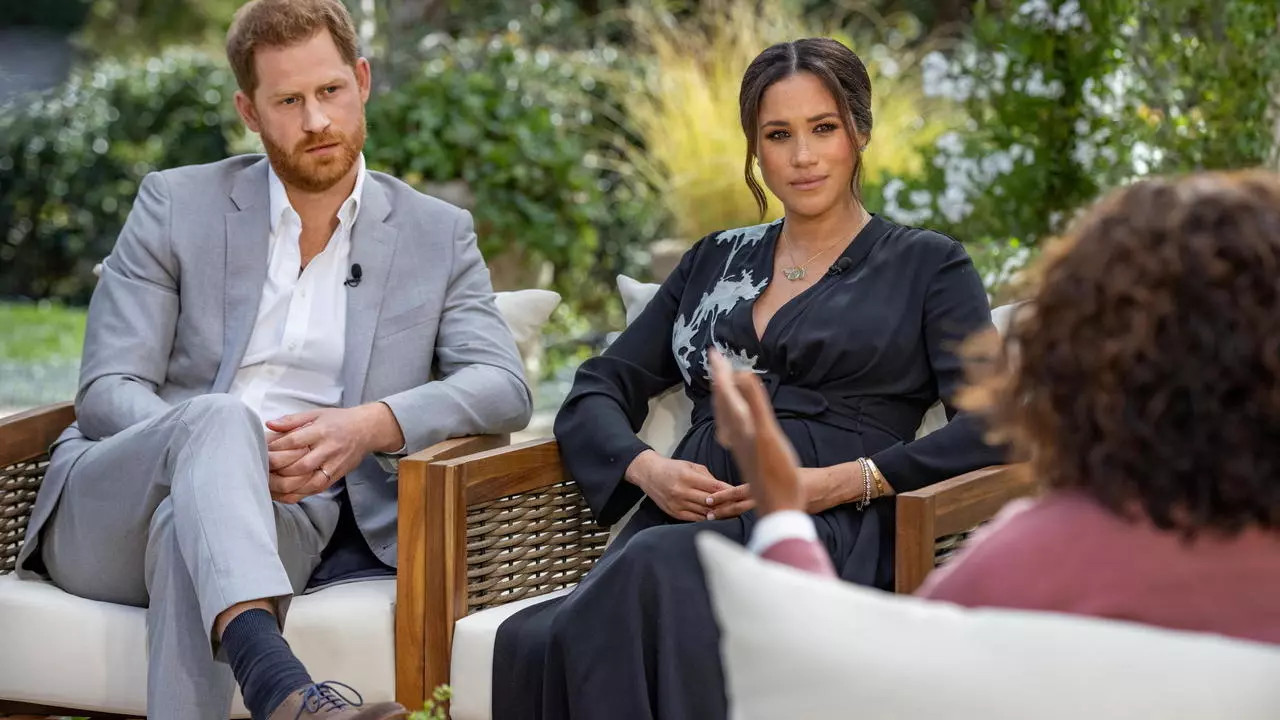
The Royal Palace has responded to allegations made by Meghan and Harry in a bombshell interview over the weekend.
WATCH: https://toronto.citynews.ca/2021/03/09/buckingham-palace-responds-harry-meghan-interview/
In a statement issued on Tuesday, Buckingham Palace said they considered the issues of race brought up during the televised interview to be “concerning.”
“The whole family is saddened to hear to learn the full extent of how challenging the last few years have been for Harry and Meghan,” the statement said. “The issues raised, particularly that of race, are concerning.”
“While some recollections may vary, they are taken very seriously and will be addressed by the family privately,” the statement continued.
The statement concludes, saying “Harry, Meghan and Archie will always be much loved family members.”
Earlier, some observers had said that Buckingham Palace’s silence on the topic has only added to the furor surrounding the TV interview.
The interview, which aired Sunday night in the U.S. and a day later in Britain, has rocked the royal family and divided people around the world. While many say the allegations demonstrate the need for change inside a palace that hasn’t kept pace with the #MeToo and Black Lives Matter movements, others have criticized Harry and Meghan for dropping their bombshell while Harry’s 99-year-old grandfather, Prince Philip, remains hospitalized in London after a heart procedure.
During the two-hour interview, Meghan described feeling so isolated and miserable inside the royal family that she had suicidal thoughts, yet when she asked for mental health help from the palace’s human resources staff she was told she was not a paid employee. She also said a member of the royal family had expressed “concerns” to Harry about the colour of her unborn child’s skin.
Winfrey later said Harry told her off-camera that the family member wasn’t Queen Elizabeth II or Prince Philip, sparking a flurry of speculation about who it could be.
Harry also revealed the stresses the couple endured had ruptured relations with his father, Prince Charles, heir to the British throne, and his brother, Prince William, illuminating the depth of the family divisions that led the couple to step away from royal duties and move to California last year.
Prince Charles didn’t comment on the interview Tuesday during a visit to a vaccine clinic in London.
Harry’s father visited a church to see a temporary vaccine clinic in action and met with health care workers, church staff and people due to receive their vaccine jab. The visit was his first public appearance since the interview aired in the U.S. on Sunday night.
Maziya Marzook, a patient at the event, said “private matters didn’t come up at all” during Charles’ visit.
“He didn’t bring up anything,?” Marzook said. “He was more interested in how the vaccine was and how we feel.”
You can read the full statement below:

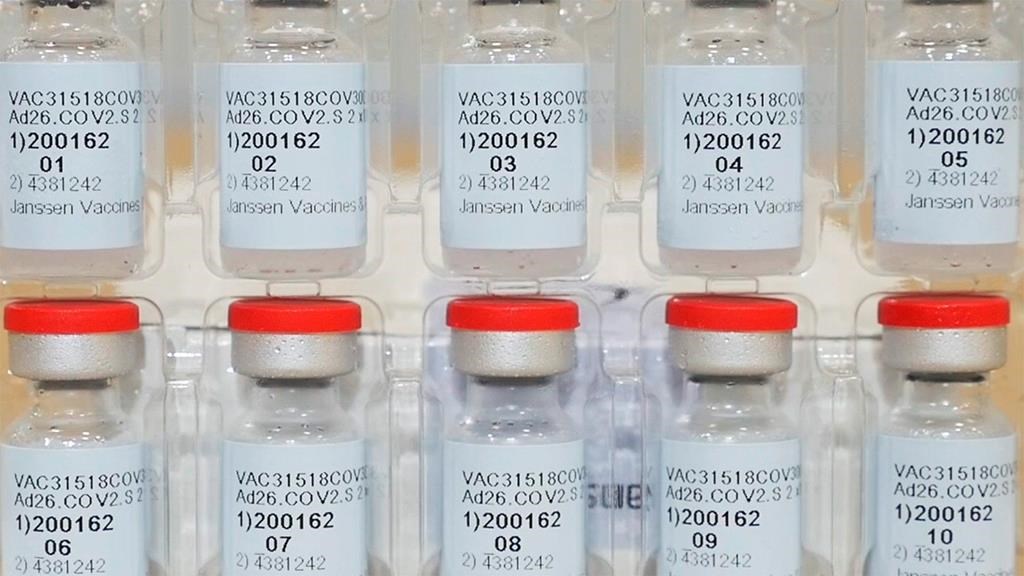
Prime Minister Justin Trudeau says Canada has been warned of manufacturing problems plaguing the Johnson & Johnson vaccine.
The viral vector vaccine developed by J&J’s subsidiary, Janssen Pharmaceuticals, was authorized by Health Canada as safe and effective last week.
Canada pre-ordered 10 million doses of the vaccine, which is the first and only one in Canada’s vaccine plan that needs only one dose.
But Trudeau says Canada still doesn’t have a date for when it should receive the first deliveries.
“We have heard in many conversations with Johnson & Johnson that there are challenges around production of the Janssen vaccine, but we will continue to engage with them and we look forward to receiving doses as soon as possible,” he said Tuesday at a news conference in Ottawa. “And as soon as we get confirmation of doses being sent to Canada, we will let everyone know.”
Canada’s vaccine rollout has stepped up this month, after deliveries slowed to a trickle in February. Nearly a million doses of Pfizer-BioNTech and Oxford-AstraZeneca vaccines were delivered last week and 910,000 doses of Pfizer’s and Moderna’s vaccines are arriving this week.
It took Canada 67 days to vaccinate the first one million people. It should take less than one-third that time to vaccinate the second million.
As of Tuesday, more than 1.9 million Canadians had received at least one dose.
Chief public health officer Dr. Theresa Tam said Canada isn’t quite ready to follow the U.S. Centers for Disease Control with guidance for how vaccinated people can relax their public health measures.
The CDC said Monday that two weeks after getting their second doses, Americans can now visit indoors, without masks, with other fully vaccinated people, or those who are not vaccinated but are at low risk of serious illness.
Tam said there are still too many unknowns, including the effect of COVID-19 variants, and how vaccines will affect the spread of the novel coronavirus.
The United States is far ahead of Canada, having now vaccinated more than one in four people. Canada has vaccinated about one in 20.
Tam said there are “initial positive signs” that the Pfizer and Moderna vaccines are preventing transmission, as well as reducing the severity of illness, but it is still early.
The emergence of variants that aren’t all responding as well to vaccines is also of concern, she said.
Tam said Ontario now believes almost one-third of its new cases are one of those variants, with the B.1.1.7 variant first identified in the United Kingdom the most common. That variant also appears to be the most receptive to the current vaccines.
Manitoba said Tuesday it had confirmed five new cases of B.1.1.7 and eight of another variant called B.1.351, but also said there did not appear to be any community transmission.
Saskatchewan said it had 35 new cases of variants among cases testing positive between Jan. 26 and Feb. 27, almost all of them B.1.1.7.
Alberta, meanwhile, said it had 28 new variant cases, for a total of 687.
B.C. had another 182 variant cases for a total of 576, most of them linked to the strain first found in the United Kingdom.
Tam said the next couple of weeks will be critical as many provinces have just begun easing the tightest lockdowns this week.
“We will know pretty soon, I think, as to whether we are able to keep the variants at manageable proportions while vaccines are escalated,” Tam said. “Which is why now is not the time to sort of make too many shifts in the public health measures at this time. But we will be able to do so based on what actually happens next.”
Ontario moved COVID-19 hot zones of Toronto and Peel out of total lockdown Monday, allowing retail stores to admit customers for the first time in 100 days, but is keeping restaurants closed to in-person dining. Quebec adjusted restrictions in five regions, including Quebec City, allowing gyms and restaurants to reopen in limited capacity for the first time since before Christmas.
Saskatchewan said Tuesday it was immediately ending its total ban on household gatherings, allowing people to have up to 10 people over from two or three different households. Next week it will increase capacity limits on houses of worship.
The number of new cases in Canada has plateaued at about 2,900 cases per day for about three weeks, but since Feb. 23, the average number of deaths per day has fallen from 54 to 37.
Newfoundland and Labrador also seems to be recovering from a major outbreak that swept through St. John’s last month. Public health officials reported one new case Tuesday and said active infections are down to 80, from 203 a week ago.
Canada’s vaccine contracts set out expected deliveries by first quarter and all 10 million of Canada’s J&J doses are to come between April and September. But it’s not yet known how many are to come in the spring and how many in the summer.
Johnson & Johnson production problems are affecting Europe and the U.S. as well. Several European countries, where the vaccine isn’t yet authorized, said they don’t expect as many doses of it next month as originally planned.
U.S. President Joe Biden said last week when he took office he was informed Johnson & Johnson was behind on production and efforts began to find more production space. Sanofi was first contracted to help produce the vaccine in Europe and last week Biden announced Merck would help produce it in the United States.
But it will be many months before they have production lines up and running.
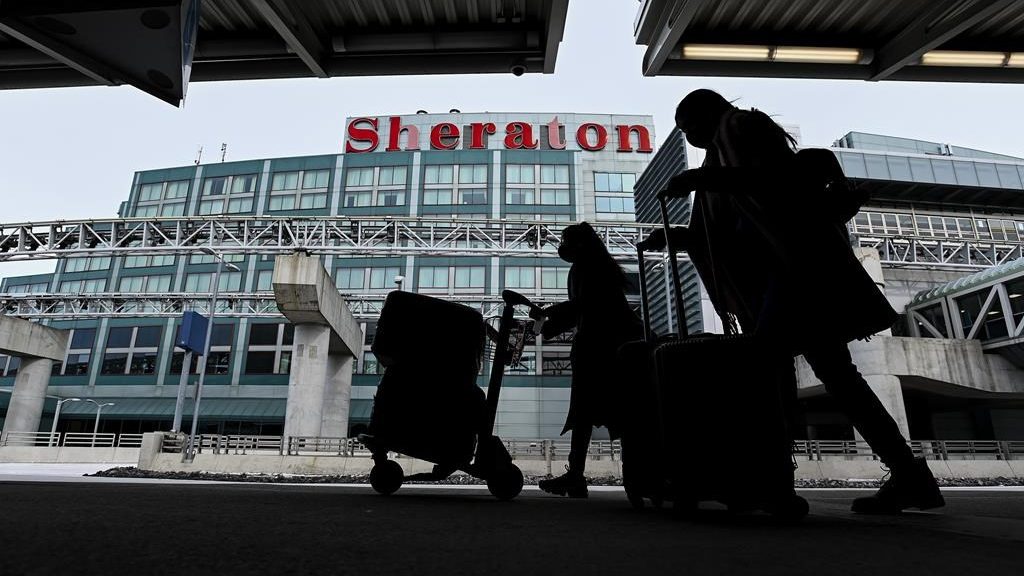
A constitutional rights advocacy group is mounting a legal challenge to the federal government’s quarantine hotel policy, arguing it infringes on Canadians’ fundamental rights.
The Canadian Constitution Foundation has filed an application with Ontario’s Superior Court of Justice along with five individuals, seeking an end to the policy. The application names the Attorney General of Canada as the defendant.
A government order that went into effect on Feb. 14 mandates that anyone entering Canada from abroad must stay in a federally approved hotel for the first three nights of a 14-day quarantine.
“The biggest issue is that we have a fundamental right to enter Canada and this is a limit on that right and it’s not a justified limit,” said Christine Van Geyn, litigation director for the CCF. “There are so many alternatives that would be less infringing on rights.”
Travellers are expected to pay for their government-approved accommodations, which can cost hundreds of dollars per night. They may leave the hotels once a COVID-19 test taken at their point of entry comes back negative.
The Canadian Constitution Foundation argues in its legal application that hotel quarantine requirements are “overbroad, arbitrary and grossly disproportionate.”
The applicants are seeking an injunction to suspend the order, but are also asking to have the law struck down for infringing upon the constitutional rights of liberty, freedom from unreasonable detention, and the right to be free of cruel and unusual punishment.
The CCF is also seeking damages of $10,000. Van Geyn said the request for nominal damages is to cover off the costs of the five individual applicants for their hotel stays at approximately $2,000 per person.
“The focus is not on the money, the focus is on the ability for them to exercise their fundamental rights,” she said.
The CCF argues that the hotel policy detains people without COVID-19 symptoms who would be able to safely quarantine outside of government-approved accommodation at minimal or no expense.
A spokesperson for Health Canada and the Public Health Agency of Canada said that they were aware of the legal action and that the federal government intended to respond to the application.
When the order came into effect Van Geyn and the CCF asked for people impacted by the quarantine hotel policy to reach out to them. She said that the group received approximately 5,000 letters of support or from people directly effected by the policy.
Van Geyn said that the five individuals participating in the legal challenge were selected because they all had to travel out of Canada for compassionate reasons, in three cases attending to their parents in the final days of their lives.
She noted that Canada has an exemption to its quarantine policy for people entering the country for compassionate purposes, but not for residents who had to leave Canada for similar reasons.
“If you live in Florida and your mother breaks her hip and you need to come to Canada to help her … you can apply for an exemption and be granted one,” said Van Geyn. “But if the situation is reversed, if you live in Canada and your mother lives in Florida, you would still want to go and help her prepare for surgery and recover, but you are not eligible for an exemption when you return.
“It’s strange to me that the government is concerned about these compassionate travellers but only when you’re travelling in one direction.”

Julia Grieve the Accidental Environmentalist
Instagram: @prelovedjules
Recipe:
Future Nostalgia—
A trash twist on the classic Tom Collins, this cocktail calls for a syrup made from citrus scraps!
The Tom Collins recipe was first printed in the 1876 bartender book, it’s a nostalgic cocktail, fresh, fruity and I gave it a sustainable twist because the future is green.

CHOPPING BOARD CORDIAL –
(Example Recipe)
1kg Mixed fresh off cuts
1L Water
240g Granulated sugar
24g Citric acid powder
12g Malic acid powder
- Weigh your off cuts and add the same amount of water
- Cover and leave to soak over night at room temperature
- Strain out and weigh infused liquid
- (Assuming new weight is 1.2kg) add all powders and stir till dissolved
- Bottle and store cold
Future Nostalgia-
- 1 ½ cups ice
- 2 oz gin
- ¾ oz lemon juice
- ½ oz chopping board citrus cordial
- 1 cup ice
- 2 oz club soda
- Lemon wedge for garnish
Fill a glass with ½ cup ice and set aside in the freezer to chill. Combine the gin, lemon juice and cordial in a cocktail shaker with 1 cup of ice, cover and shake until chilled.
Strain into the chilled glass, top with club soda and garnish with a lemon slice and enjoy!
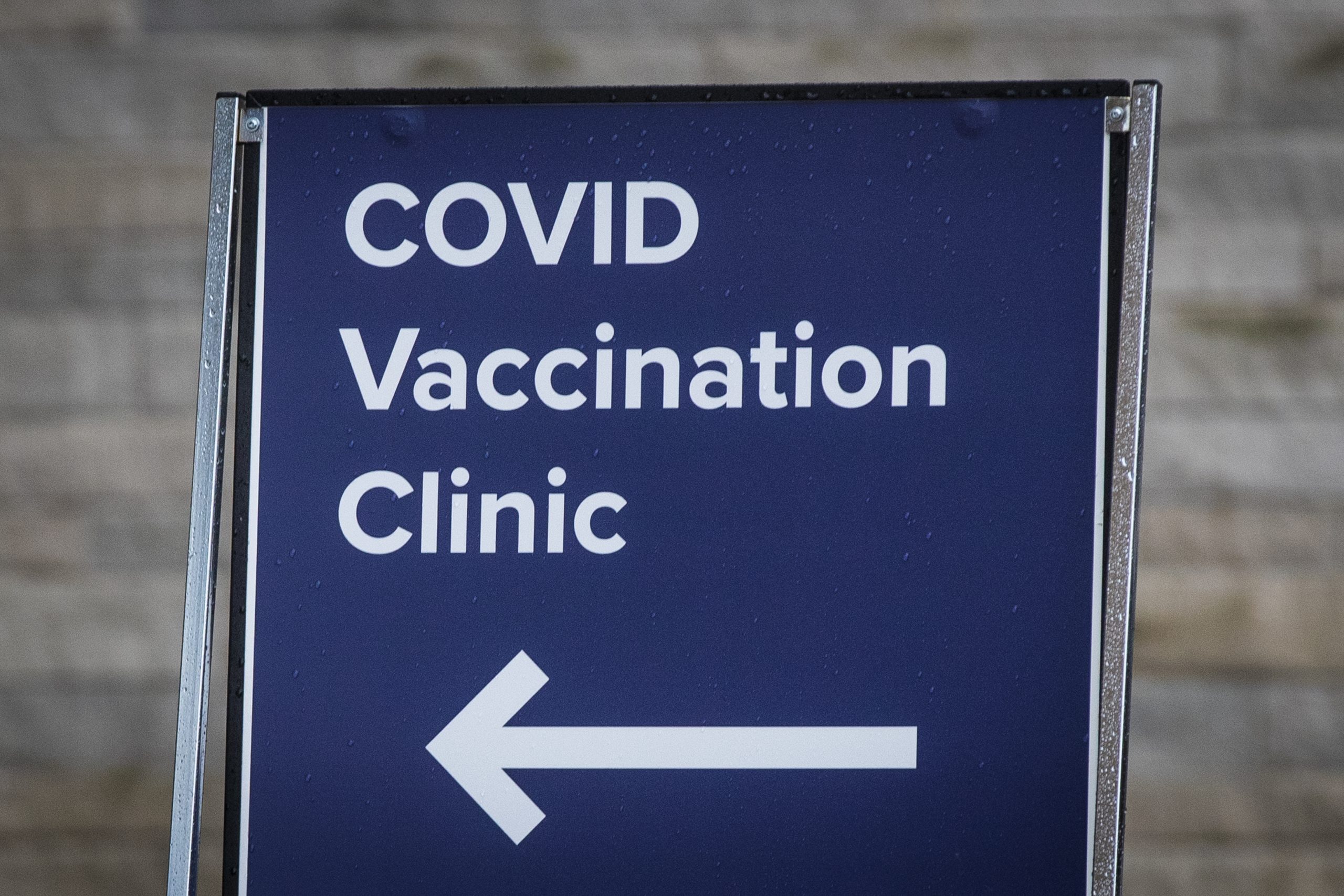
Ontarians won’t be asked to provide proof of their pre-existing health conditions to access a COVID-19 vaccine during the second phase of the rollout, the province’s health minister said on Monday
Christine Elliott said she believes most people will come to clinics when they are permitted and not take advantage of the honour system.
The vaccine will be offered starting in April to people with specific health conditions like organ transplant recipients, those living with obesity and those receiving treatments that suppress the immune system.
Elliott said local public health units will screen people as they arrive at the clinics and may be able to check with a person’s family physician, but that will not be mandatory. She said some people may be asked to come back at another time but that hasn’t been an issue with the rollout so far.
“We haven’t run into very many of those situations,” she said. “People are following the rules, they are coming in at the appropriate time, they’re being very patient, and they want to make sure that people who are the most at risk are going to be given their vaccinations first.”
Vaccinations among the highest-priority Ontarians, including long-term care residents and staff, are wrapping up, and some local public health units have already begun offering shots to the broader public, starting in many cases with those over age 80.
First vaccine doses were completed as of Monday in 31 fly-in Indigenous communities, in what the province called a “milestone” in its effort to provide protection against the virus in remote areas. Ontario aims to complete second doses in those communities by the end of April.
Meanwhile, Ontario reported 1,631 new cases of COVID-19 Monday, but the government said the case count was higher due to a “data catch-up process” in its system.
The province also recorded 10 additional deaths linked to the virus.
Those numbers came as a stay-at-home order lifted in Toronto, Peel Region and North Bay, loosening some pandemic restrictions imposed nearly two months ago.
The three regions are the last to move back to the government’s colour-coded pandemic response framework.
Toronto and Peel entered the strictest “grey lockdown” category, as requested by public health officials in both regions.
The new lockdown allows more retailers to open, with restrictions, but gyms and personal care services remain closed. Restaurants can only offer takeout, drive-thru or delivery.
Shoppers lined up outside Toronto’s Eaton Centre on Monday morning, waiting for the downtown shopping mall to open. Lines also formed outside several larger stores in the downtown core including the Hudson Cay Company, HomeSense, H&M, and Best Buy.
Bianca Charles said she was so excited to go shopping in person that she didn’t sleep the night before. She said she wasn’t looking to buy anything in particular, but was eager to have the outing.
“It’s just nice to have back your freedom, stretch your legs a little bit, to just do something,” said Charles, who was first in line to go into HomeSense.
Some restaurant owners said they won’t be able to survive much longer unless they’re allowed to reopen for on-site dining, even at limited capacity.
“Move us to the red zone (of the pandemic system) so we have a fighting chance. Even 14 days in grey lockdown could mean the end of my business and many others,” Regan Irvine, owner of the Irv Gastropub in Toronto, said in an open letter to officials issued last week.
North Bay moved Monday to the “red zone,” the second most restrictive level of pandemic measures.
This report by The Canadian Press was first published March 8, 2021.
– with files from John Chidley-Hill and Shawn Jeffords

A lawyer with the Canadian Civil Liberties Association says some air passengers who refuse to comply with the mandatory hotel quarantine upon arrival in Canada may have a legal ground to stand on.
WATCH: https://toronto.citynews.ca/2021/03/08/there-may-be-legal-grounds-to-fight-hotel-quarantine-lawyer-says/
As CityNews has been reporting, the federal three-day hotel quarantine rules are being ignored by some Canadians.
Those individuals say that prior to walking out of the airport, officials did tell them to expect a hefty ticket in the mail.
“People who believe that these rules are inappropriate, particularly when applied to their circumstances, have every right to fight these tickets,” said Cara Zwibel, director of Fundamental Freedoms Program at the Canadian Civil Liberties Association.
“I can’t predict what a court will do with them but I do think there are good arguments here to point out the arbitrariness of some of these rules. The fact that if I had entered by land I wouldn’t have to quarantine so how is it that I’m such a danger because I’ve entered by air? People who say, ‘I have a perfectly good place to isolate at home.’”
Zwibel also notes that in some cases, the government’s rules seem counterintuitive to public health.
“Flights have been limited to the four airports for international flights, so you’re going to have people who’re going to have to do the hotel quarantine in one city and then potentially fly to another city to actually get home and that again puts them in a situation in which they’re exposed to more people, in an airplane, than they would be if they had just gone directly home.”
As well, since a hotel stay could cost up to $2,000 out of pocket, some may see a financial incentive to disobey. It’s also unclear how much people will have to pay in fines.
“The cost of compliance could be greater than the cost of non-compliance in some cases,” Zwibel said.
She says the result of any court case may depend on the judge and the specific circumstances.
CityNews reached out to Health Canada to inquire about the average cost of fines issued to people who dodged hotel quarantines, as well as how many tickets have been issued so far. We have yet to receive a response to those questions.

Dozens of students who attended Ontario-run schools for deaf children and their families have come forward, sharing disturbing experiences that highlight decades-long systemic issues at special needs schools.
WATCH: https://toronto.citynews.ca/2021/03/08/exclusive-dozens-of-families-report-abuse-at-ontarios-schools-for-deaf-children/
“This is way bigger than we thought, we had no idea,” said one parent. “The stories we’ve heard are shocking.”
Last month, CityNews spoke to the family of a deaf girl who is preparing to bring a lawsuit against the Ontario government for the alleged mistreatment of their daughter at a Ministry of Education-run school. CityNews agreed to hide their identity to protect their daughter’s privacy.
The family alleges their daughter was abused at the Ernest C. Drury School for the Deaf in Milton. They say school administrators failed to protect her from prolonged bullying that had a devastating impact on her mental health.
Since CityNews shared their story, at least 30 other families and students have revealed their own alleged traumas.
“We’ve heard the same thing over and over, from lots of people, deaf and hearing, all afraid to come forward for fear of retaliation,” said the parent.
The family has created deaftrauma.com, where families and students detail troubling stories, some recent and some going back decades.
A few of the story titles include, “I have no trust in anyone anymore,” “My self esteem was destroyed,” “I have been traumatized by the school admin” and “There is a problem with the deaf education system.”
On the site, the original family states that it’s not staff shortcomings that are causing the problems at Ontario’s schools for the deaf.
“They are awesome and they love the kids,” they write. “The problem has always been leadership and the culture of neglect, which they have perpetuated through two class action lawsuits in the past nine years.”
“This institution, with limited accountability has just wreaked havoc,” the parent told CityNews. “It’s just unbelievably cruel conduct and we’re very concerned for the safety of children.”
CityNews also spoke to a teacher who worked at Ernest C. Drury for 15 years. The teacher also asked to remain anonymous for fear of reprisal. She says her first red flag came soon after she was hired, when in training she was taught how to restrain students.
“I was actually taught how to restrain a child,” she recalls. “That wasn’t in place for a very long period of time, but it struck me that, at the time, it was a very strange thing to be teaching the teachers, rather than crisis prevention and intervention which I had been trained in before.”
She alleged that as a staff member, she and other teachers were bullied and harassed by the principal, who had the support of administration. The teacher eventually had to take a year-long leave.
“There is always retaliation. Always. So with parents trying to make some difference, there is retaliation and they’re terrified their kids are going to bear the brunt of the retaliation,” she said. “What has to change is there has to be some sort of oversight.”
On deaftrauma.com, a parent whose daughter attended a school for the deaf, wrote about an incident that still haunts them years later. The parent explained their daughter was born deaf and had other physical disabilities, including a stomach-feeding tube and learning disabilities.
“One day I was there to pick her up. She was left in a very soiled diaper for the whole day with urine and stools inside,” they wrote. “I broke down in tears there. But they told me ‘sorry, we were short staffed…If you need proper care for your girl, you can contact the local MPP for this issue’.”
The parent added: “The administration struggle to provide proper support at times and often made us feel the school only wanted the students who are deaf with no other issues.”
Eventually, they say they put their daughter into a mainstream school: “Lucky for her, the special ed team in the hearing high school has better services for her.”
In other stories, which have not been independently verified by CityNews, former students allege being sexually assaulted by other children and staff at Ernest C. Drury, and when they reached out to administration for support, they allege their complaints were minimized and they were left to fend for themselves.
“The accountability is not the same as it would be in a school board and I think that’s why so many incidents have happened,” said the parent who launched the website.
In Ontario, special needs schools for deaf and blind students are run directly by the Ministry of Education. In 2016, the province settled a $15 million dollar class action lawsuit with former students who alleged they were physically and sexually abused at three schools for the deaf. Another lawsuit, involving as many as 1,000 children, was settled in 2012 for $8 million.
Currently, Ontario’s coroner is also investigating the death of Samuel Brown, a Brampton teen who died in 2018 while in the care of W. Ross Macdonald School for the Blind in Brantford.
The family CityNews spoke with has pulled their daughter from Ernest C. Drury. They have also given the Ontario government notice that they intend on filing a lawsuit against the province in 60 days. In it, the family alleges the school “failed to protect; failed to provide a safe environment, failed to supervise, failed to adequately investigate incidents of assault and harassment, impeded and misled investigators […] failed to implement adequate strategies to prevent future harm and failed to accommodate [her] disabilities.”
“Money is not the most important part of this claim — their daughter’s education is and their daughter’s safety is,” said Marshall Swadron, the family’s lawyer. “Unless the government comes through in a big way, the pattern is continuing.”
Both the attorney general’s office and the Ministry of Education say because this is the subject of litigation, it would be inappropriate to comment. But the Ministry of Education adds:
“The protection of students is our foremost priority. Ontario’s provincial and demonstration schools provide support, safety and meaningful learning opportunities for these students.”
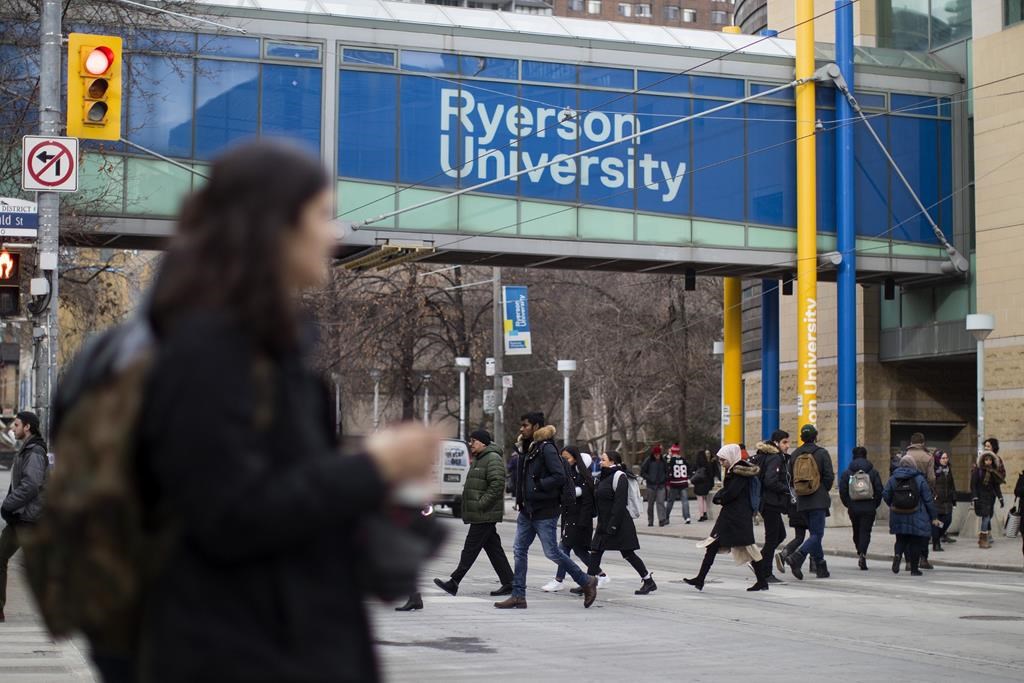
The heads of a prestigious journalism program at a Toronto university have stepped down amid calls for sweeping changes at the school to address systemic racism and discrimination.
Janice Neil, the chair of the Ryerson School of Journalism, and Lisa Taylor, associate chair and the school’s undergraduate program director, resigned on Sunday.
Both noted in their resignation letters that they had worked to address issues of systemic racism and discrimination at the school during their years as leaders.
On Monday morning, Ryerson journalism students issued a public letter accusing the school of failing to represent and support Black, Indigenous, people of colour and LGBTQ students in the program.
The letter said the school has contributed to an unsafe learning environment rife with discrimination that has left students traumatized.
In an email to The Canadian Press on Monday evening, Neil said that under her leadership, the school had increased diversity of the teaching faculty, introduced new courses about reporting on race, Indigenous issues and the LGBTQ community, and offered mental health supports for students.
But Neil also acknowledged that many students think change has not come fast enough or is broad enough to make an impact,.
“One of the things I’ve learned as a leader is to recognize when It’s time for a major reset and that time is now,” she wrote. “To get to the next level will require different leadership.”
In her resignation letter, Lisa Taylor explained her reason for stepping down.
“Some students don’t believe that I’m in their corner, which means they may not turn to me if they’re in need, and having an undergraduate program director who is a trusted resource for only some students is truly inequitable,” she wrote.
A spokeswoman for Ryerson said the school “continues to acknowledge the work that needs to be done to address systemic racism” and will continue to take concrete steps to address the students’ concerns.
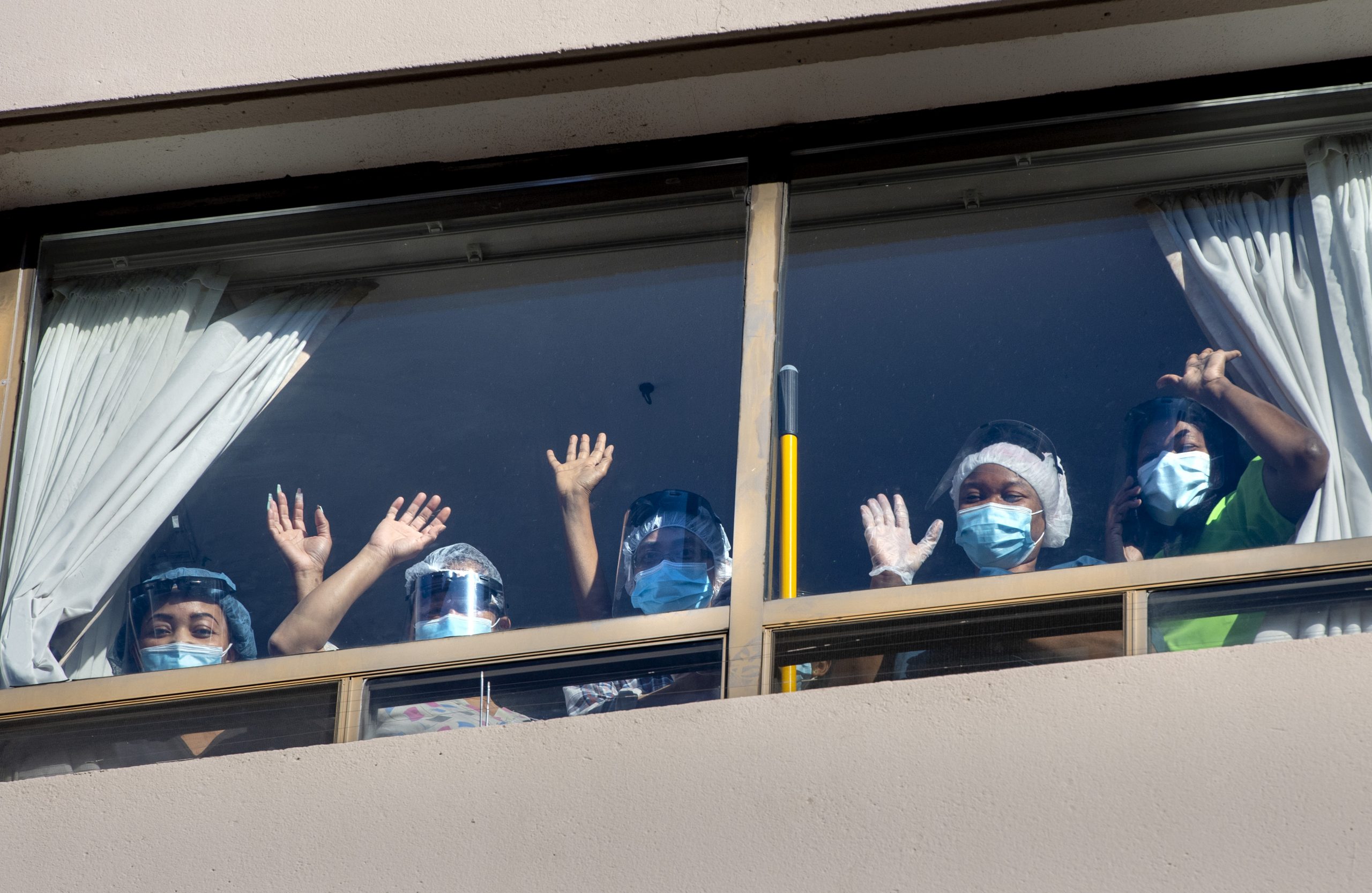
Health-care workers across Ontario still struggle to obtain personal protective equipment to shield them from COVID-19, three major unions said Sunday as they called on the province to do more to ensure their safety as the pandemic rages on.
Unifor, the health-care arm of the Service Employees International Union and the Canadian Union of Public Employees also called for a “universal wage” of $25 an hour for all personal support workers regardless of what part of the provincial system they work in.
Both messages are part of a provincewide public awareness campaign set to launch in workplaces on Monday.
The secretary-treasurer of CUPE’s Ontario Council of Hospital Unions said many workers were denied access to PPE at the beginning of the pandemic, contending it was often kept under lock and key by employers.
Sharon Richer said that practice continues today in some cases, despite assurances from the province that it has a stockpile of 12.4 million pieces of PPE such as N95 masks.
“We’re asked to work with a deadly virus,” she said. “We’re not provided with the tools to protect ourselves and not supported if we become ill from it. We demand better from this government and our employers.”
The unions, which represent 175,000 health-care workers, say thousands of them have contracted COVID-19 throughout the pandemic and 20 have died from the virus.
Richer said early in the pandemic there was debate about how COVID-19 was spread and N95 masks were difficult to obtain.
But as the pandemic nears its one-year anniversary, she argued there is no excuse not to provide workers with vital protective gear.
“The masks were very scarce,” Richer said. “They’re not now. … We shouldn’t have to go into work on a daily basis and beg for protection to keep us safe from this virus.”
SEIU President Sharleen Stewart said the unions are also asking the government to raise the wages of personal support workers in all health care settings to $25 an hour.
The pandemic has illustrated the importance of PSWs in hospitals, long-term care, and in home care, she said.
A staffing study released by the province last year illustrated the disparity between PSW wages in different sectors of the health-care system.
It found that PSWs in Ontario long-term care homes make an average hourly wage of $22.69. That compared to the $17.30 average hourly rate paid to PSWs delivering home care.
Stewart said working conditions for PSWs are poor, full-time opportunities and benefits are hard to come by, and wages are low.
“The government … must raise the minimum wage for personal support workers and make it universal in every sector,” she said. “Whether you work in a hospital, a nursing home or in home and community care, a PSW, is a PSW, is a PSW.”
Katha Fortier of Unifor said workers will participate in the campaign in the coming weeks, as Ontario prepares to launch its 2021-2022 budget.
“COVID-19 has over-stressed Ontario’s health-care resources and led to the tragic failure of the long term care system,” she said. “But the truth is the pandemic revealed systemic problems that frontline workers have been struggling with for years.”
During the pandemic, Ontario has spent hundreds of millions to provide temporary pay hikes to workers throughout the health-care sector.
In October, the province said it would provide a targeted wage increase between $2 to $3 an hour to more than 147,000 personal support workers.
That program, which cost $461 million, is set to expire on March 31.
A spokeswoman for Health Minister Christine Elliott said the government is monitoring the impact of that temporary wage increase for PSWs and evaluating next steps.
“We will continue to engage with our sector partners to inform an approach to a wage enhancement intervention after March and in the long-term for the home and community care sector,” Alexandra Hilkene said in a statement.
The government has also spent nearly $1.1 billion on PPE and other supplies for health care workers, she added.
“We have continued to respond to emergency escalations for PPE within 24 hours to hospitals, long-term care and retirement homes, and other facilities in order to support essential workers in all settings and ensuring supplies and equipment are expedited to those most in need,” Hilkene said.
















